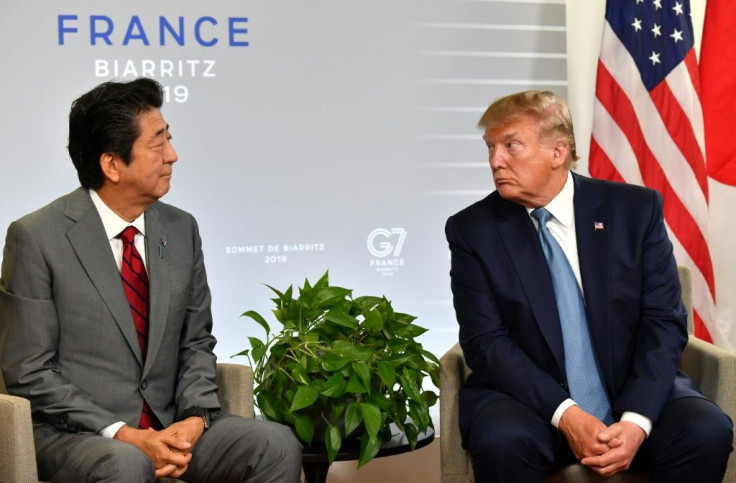Global Trade: Why It's Important To Bring IP Back Into US - Japan Deal

If you blinked, you might have missed it. On Jan. 1, a limited trade deal between the United States and Japan took effect. It doesn't go nearly far enough. Moving forward, Congress should demand more.
The U.S.-Japan "phase one" agreement commits Japan to buy more U.S. agriculture and calls for fewer obstacles to digital trade. That's pretty much it. Ironically, the U.S. would have won more from Japan had we just stayed in the Trans-Pacific Partnership (TPP). To call U.S.-Japan "TPP light" is being generous.
But it's not too late to fix things. That's because a new round of talks is scheduled to kick off in April. Expectations have to be set higher. Congress should demand that U.S.-Japan be expanded, starting with intellectual property (IP).
The U.S. is a creative economy. Ideas drive our economic growth. Intellectual property, including patents, copyrights, and trademarks, makes this possible. It compensates artists, scientists, inventors, and investors for bringing their ideas to market, despite the high risk of foreign theft.
The problem is that ideas are easy to steal or reverse engineer -- especially in countries that do not provide the robust IP protections that exist already in the U.S. Strengthening other countries' IP protections through trade agreements, therefore, would increase investment in the American creative industries that drive U.S. economic growth. The implications for our prosperity are obvious. The software industry, for example, contributes $1 trillion to our economy each year, and the biopharmaceutical industry generates $1.3 trillion in economic output. All told, IP-intensive industries -- including film, technology, and publishing -- support 58 million jobs across the country.
In Japan, U.S. ideas-based goods and services face a variety of IP and other challenges.
For example, Japan's government turns a blind eye to IP theft in the form of counterfeit goods. Japanese citizens are allowed to import counterfeit goods so long as they are for "personal use." There are no limits to what can be imported under this exemption, nor how many times it can be used.
Japan also does relatively little to crack down on online piracy, one of the most common forms of IP theft. Japanese citizens made 10.6 billion visits to piracy sites in 2017, making them some of the biggest consumers of illegal music, movies, and television shows. Piracy costs America $30 billion and up to 560,000 jobs every year, according to the U.S. Chamber of Commerce.
Other Japanese policies also undermine U.S. creativity. For example, innovative drugs from the U.S. are treated less favorably than those from Japan, rewarding domestic over foreign scientists through preferential government-imposed prices. For drugs and medical devices, Japan tends to reward work done in Japan, like clinical trials, through faster approvals, more so than the novelty of the product.
U.S.-Japan phase one did manage to secure a few narrow digital trade protections. But none of them go far enough. To protect America's creativity and innovation, the U.S. needs much stronger IP across all industries, as well as equal treatment of its ideas through other policies. As an advanced economy and a mature democracy, Japan can and should do better.
To accomplish this, the U.S. needs a different trade "template" than the one we've seen recently. Each time the U.S. concludes a trade deal, it not only wins concessions from the other side but sets expectations concerning future deals. IP has to be front and center in the U.S. template, not just for trade with Japan, but the long list of countries that President Trump is eyeing next.
The point of a trade deal is not to pick one industry or issue over another but to comprehensively tackle all facets of our bilateral commerce. It would be a mistake for further U.S.-Japan trade negotiations not to focus on robust IP protection and ideas-based goods and services more generally. It would be an even bigger mistake for Congress to be satisfied with U.S.-Japan phase one as a one-off mini-deal. Indeed, all U.S. trade partners are drawing lessons from our template.
Marc L. Busch is the Karl F. Landegger Professor of International Business Diplomacy at Georgetown University's School of Foreign Service
© Copyright IBTimes 2024. All rights reserved.





















